The NHTSA is Investigating Tesla's Autopilot Recall

Late last year, Tesla recalled two million vehicles to add more driver monitoring safeguards to its Autopilot feature, but the National Highway Traffic Safety Administration is worried it might not have done enough. The NHTSA recently announced that it was opening an investigation into the recall after crashes involving “fixed” vehicles and its early testing on the issue.
Autopilot had already been under investigation by the NHTSA for years, with the agency saying that “Tesla’s weak driver engagement system was not appropriate for Autopilot’s permissive operating capabilities.” It also noted that the deficiencies created a “critical safety gap.”
Part of Tesla’s recall fix also requires the driver to opt in and lets them easily reverse it, which, you know, defeats the purpose of a recall. At the time of the action, the automaker said its controls “may not be sufficient to prevent driver misuse,” noting that they could increase the risk of a crash. The NHTSA’s investigation also found more than a dozen fatal accidents where the driver’s abuse of the system contributed.
Tesla’s marketing and naming conventions have also been questioned, with the NHTSA saying that Autopilot could inspire false confidence in the system’s capabilities. Its Full Self-Driving feature is in the same boat, though the automaker recently included new language on its website that outlines the need for an attentive driver. Still, there are several examples of gross driver abuse of the tech online, so it might be time for Tesla to actually do something to fix the problem.
[Image: Shutterstock]
Become a TTAC insider. Get the latest news, features, TTAC takes, and everything else that gets to the truth about cars first by subscribing to our newsletter.

Chris grew up in, under, and around cars, but took the long way around to becoming an automotive writer. After a career in technology consulting and a trip through business school, Chris began writing about the automotive industry as a way to reconnect with his passion and get behind the wheel of a new car every week. He focuses on taking complex industry stories and making them digestible by any reader. Just don’t expect him to stay away from high-mileage Porsches.
More by Chris Teague
Latest Car Reviews
Read moreLatest Product Reviews
Read moreRecent Comments
- Lorenzo This car would have sold better if there was a kit to put fiberglass toast slices on the roof.
- Lorenzo The Malibu is close to what the 1955 Bel Air was, but 6 inches shorter in height, and 3 inches shorter in wheelbase, the former making it much more difficult to get into or out of. Grandma has to sit in front (groan) and she'll still have trouble getting in and out.The '55s had long options lists, but didn't include a 91 cubic inch four with a turbo, or a continuously variable transmission. Metal and decent fabric were replaced by cheap plastic too. The 1955 price was $1765 base, or $20,600 adjusted for inflation, but could be optioned up to $3,000 +/-, or $36,000, so in the same ballpark.The fuel economy, handling, and reliability are improved, but that's about it. Other than the fact that it means one fewer sedan available, there's no reason to be sorry it's being discontinued. Put the 1955 body on it and it'll sell like hotcakes, though.
- Calrson Fan We are already seeing multiple manufacturers steering away from EVs to Hybrids & PHEVs. Suspect the market will follow. Battery tech isn't anywhere close to where it needs to be for EV's to replace ICE's. Neither is the electrical grid or charging infrastructure. PHEV's still have the drawback that if you can't charge at home your not a potential customer. I've heard stories of people with Volts that never charge them but that's a unique kind of stupidity. If you can't or don't want to charge your PHEV then just get a hybrid.
- AZFelix The last time I missed the Malibu was when one swerved into my lane and I had to brake hard to avoid a collision. 1 out of 5⭐️. Do not recommend.
- 2ACL I won't miss it; it was decent at launch, but in addition to the bad packaging, GM did little to keep it relevant in the segment. I'd prefer that another domestic automaker doesn't just give up on the mainstream sedan, but unlike some of Ford's swan songs, the Malibu made an indifferent case for why they should live.



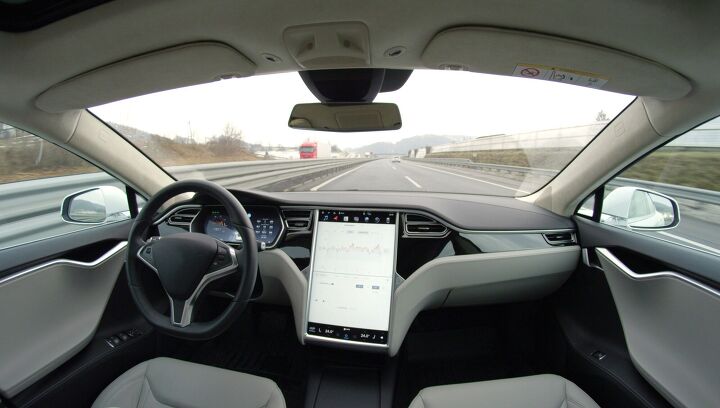

















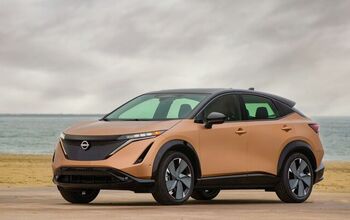
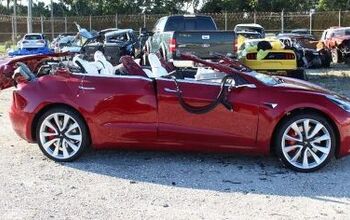
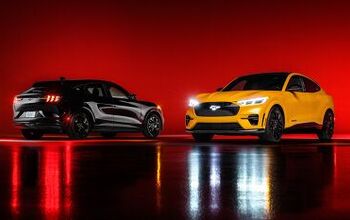







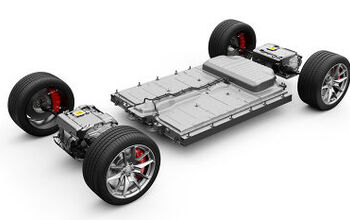


Comments
Join the conversation
"I'm an excellent driver."
Lawfare in action, let’s see where this goes.